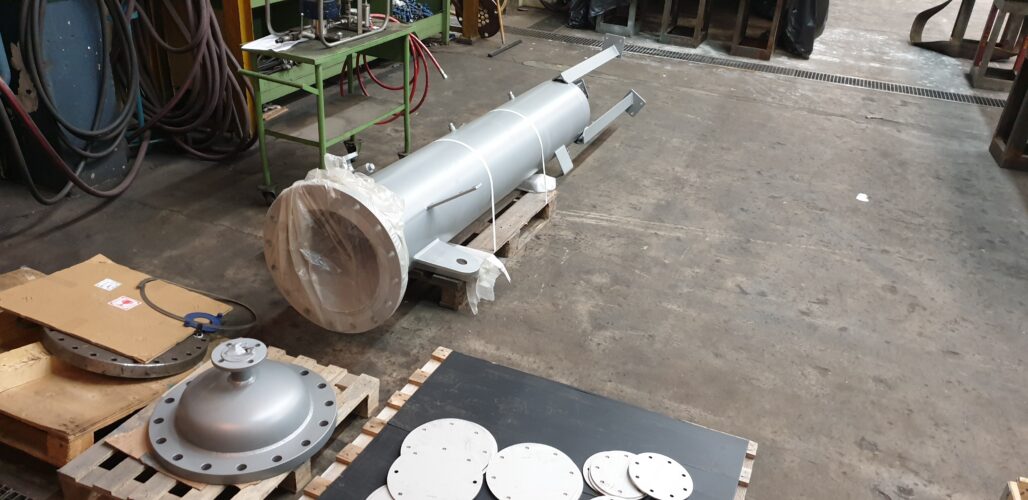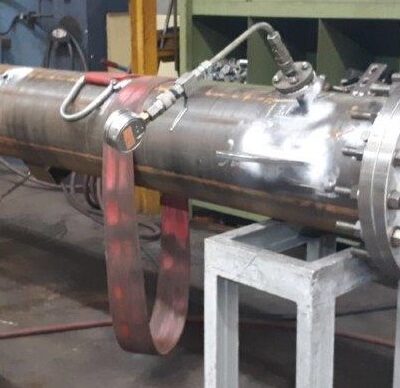To achieve a fully circular economy we will have to be able to close our material and also our energy loops. Re-using, storing and upgrading energy is an essential part of creating a sustainable system. In the industry a large part of the energy usage comes in the form of heat. The Flexsteam project focuses on a cost-efficient heat storage technology to make heat storage more accessible for industry. Heat storage is an important element in improving the process energy efficiency, facilitating to incorporate larger shares of fluctuating renewable energy, and for the integration of heat pumps in industrial processes. By focusing on the efficiency of processes as well as replacing fossil resources with renewable ones we will be able to greatly reduce the industrial sectors’ dependence on fossil energy, and reduce the CO2 emissions.
The Flexsteam project is focused on the development of a cost-effective Phase Change Material (PCM) heat storage technology as a key component for more sustainable industrial heat system. The activities are targeted at the development of a modular, high temperature heat storage system for the production of process heat and process steam. A laboratory prototype system of PCM based heat storage will be developed and will be tested under conditions representative for selected industrial processes. The techno-economic feasibility of the PCM based thermal storage concept will be assessed for industrial applications.
100% renewable energy system
The storage of energy is an important cornerstone of the future 100% renewable energy system to match the varying supply of renewable resources with the demand for energy. With thermal energy being the most used form of energy in industry, thermal energy storage can play a crucial role in matching energy supply and demand in industry, and improving the energy efficiency of processes.
Heat storage can be achieved relatively cheap by using so called ‘Phase Changing Materials’ or PCMs. Often a composition of salts or organic materials, PCMs change from solid to liquid and in the process store latent heat, which is released again in the reverse process of phase change from liquid to solid. Using this principle can store a lot of heat at a fairly constant temperature in a small volume.
The technology that is being developed will be used for the recovery and re-use of industrial excess heat, directly as well as indirectly through the use of heat pumps. Apart from that it will also be possible to increase the implementation rates of sustainable heat sources like geothermal and solar energy to generate process heat.
Technical development
Applications for thermal storage are identified within the processes at Tata Steel and at DOW. At Tata Steel the thermal storage is to be integrated in a waste heat recovery application, to generate steam. The storage system creates additional energy and cost savings by covering the mismatch between waste heat supply and steam demand. A dynamic simulation of the thermal storage system was done to calculate these annual savings, and will be used as a tool for further optimizing the sizing of the storage system.
The design of the laboratory prototype system is based on a conventional shell & tube concept, where the tubes consist of the PCM filled elements, closely stacked together. The PCM thermal system will be thermally charged by applying steam to the outside of the tubes, heating them above the melting temperature. In discharge mode hot water is circulated along the tubes, which will transfer their heat to generate steam again. The prototype design is finished and construction has started.

Outlook
The first tests of the system will start in the first quarter of 2021. Initial tests will be used to characterize the thermal performance in terms of storage capacity and heat transfer rates. Various operating conditions will be applied and results will be used to validate the thermal system model of the prototype system.
The test results and performance chart will also be used as input for calculating the techno-economic feasibility in the considered applications at Tata Steel and DOW. When the results are successfully obtained the next step is to develop a pilot project for on-site testing.
The FLEXSTEAM project consortium exists of TNO (project coordinator), ISPT, Royal Cosun, DOW, TataSteel B.V, Blue Terra and Bronswerk.
This project is co-funded with subsidy from the Topsector Energy by the Ministry of Economic Affairs and Climate Policy.
Acknowledgement
This project is co-funded with subsidy from the Topsector Energy by the Ministry of Economic Affairs and Climate Policy.
